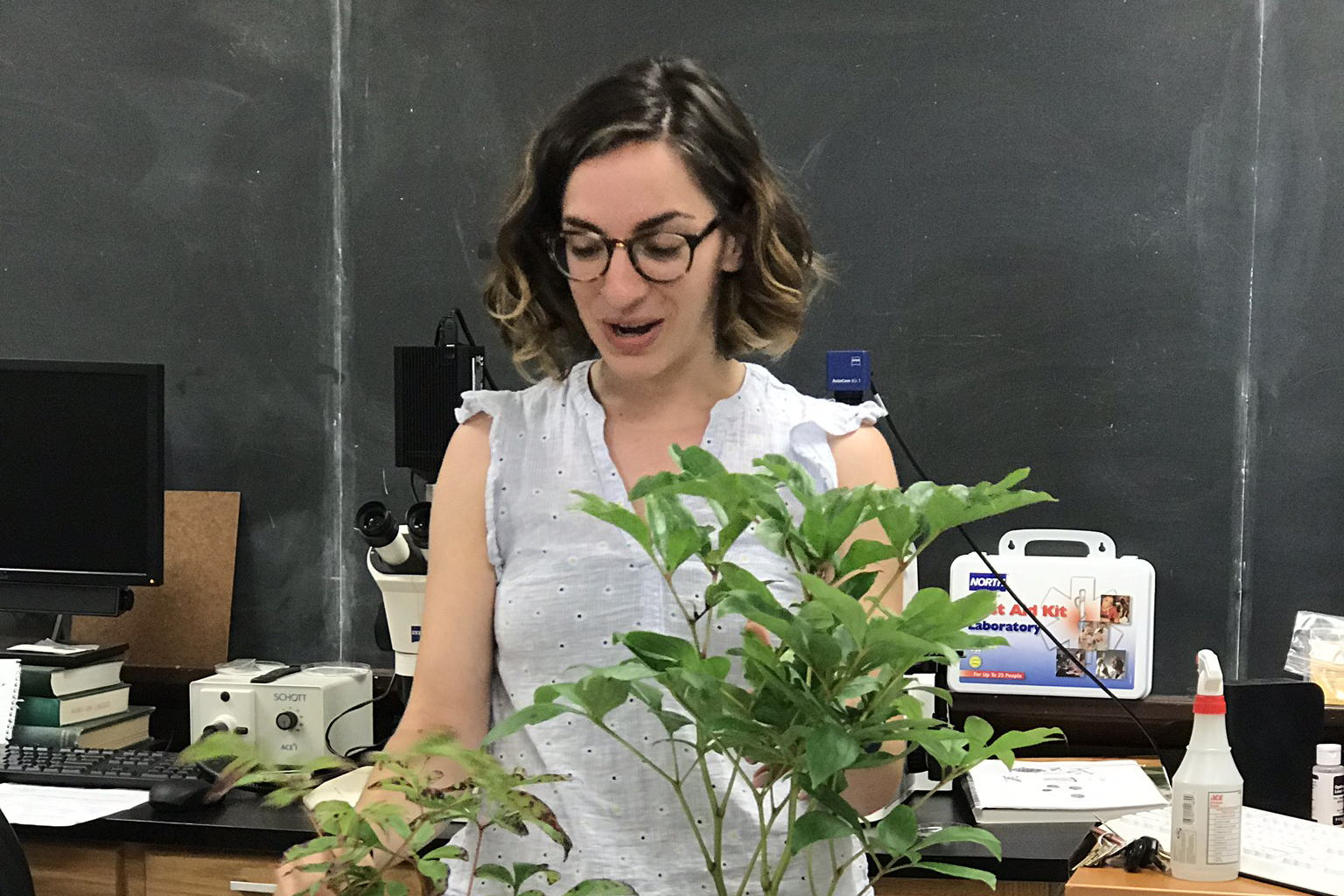When Assistant Extension Educator Abby Beissinger took over leadership of the UConn Plant Diagnostic Lab in the spring of 2019, she dove into a job that seems tailor made for her interests, background and skills. As is often the case with extension educators, the path to her current position was not necessarily direct.
Born and raised in a suburb of Chicago, Beissinger majored in anthropology at the University of Wisconsin–Madison. She was interested in primate and human evolution. She studied how humans shape their landscapes. Her adventurous nature took her to Costa Rica and Uganda to help implement low-cost pest management systems and to undertake community needs assessments through development projects. After graduation, she joined AmeriCorps and served with the environmental nonprofit Groundwork Lawrence to establish schoolyard gardens with K-12 students.
But how did this path lead to plant diagnostics? Beissinger smiles as she recalls taking a plant pathology course on a whim to complete her undergraduate science requirements. Suddenly the path toward anthropology took a sharp turn toward diagnosing the intricacies of insect pests and plant diseases. She enrolled in a graduate program at Washington State University and studied potato virus Y and its effect on the livelihoods of western Washington potato growers. She applied her interest in human development and human health to the interaction of plant health and diseases.



